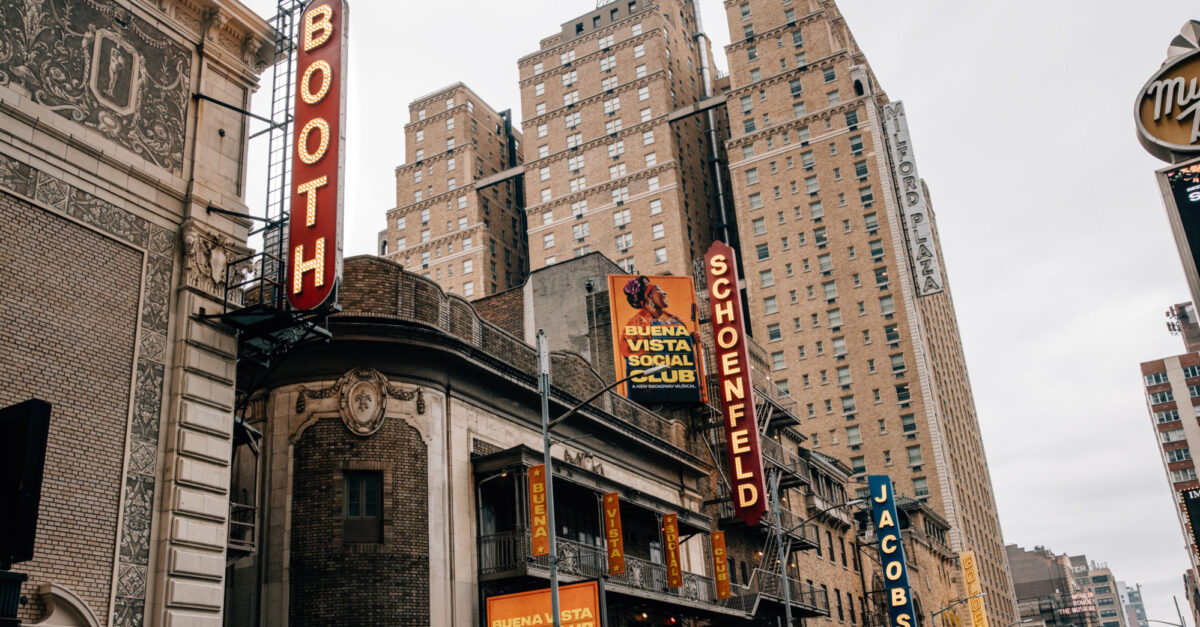
Broadway Musicians Have Voted to Authorize a Strike
Broadway Musicians Have Voted to Authorize a Strike
Musicians and actors are currently negotiating with the Broadway League for a new labor contract—and a strike is now officially on the table.
Vi Dang
American Federation of Musicians Local 802, the union that represents musicians on Broadway, has voted to authorize a strike as negotiations continue with The Broadway League for a new standard contract. The move does not mean a strike is underway; it arms union leaders with the ability to call one as a negotiating tactic. Around 98 percent of voting members voted for a strike.
A representative from Local 802 told Playbill that a strike can be called in the next two weeks, if negotiations with the Broadway League remain unsuccessful.
The musicians’ most recent contract expired August 31, 2025. Since then, the union has been trying to achieve a new contract that includes increased wages, increased healthcare contributions, and employment and income security.
“On the heels of the most successful season in history, the Broadway League wants the working musicians and artists who fueled that very success to accept wage cuts, threats to healthcare benefits, and potential job losses,” said Local 802 President Bob Suttmann in a statement. “Faced with such an egregious erosion of their working conditions, Local 802 Broadway musicians and other artists are ready to leverage every ounce of their collective power, up to and including a strike. Committing to anything less would mean sacrificing far too many hard-won gains.”
This latest development comes as The Broadway League is also amidst negotiations with actor and stage manager union Actors’ Equity Association on their own standard production contract. That agreement expired September 28, and the union has shared publicly that negotiations with the League have not been successful, and with a strikingly similar list of demands to the musicians. Equity’s council has also authorized the calling of a strike; the union has been collecting signed cards from members that say “if the time comes, I am ready to strike.”
There is also a letter to the Broadway League signed by over 1,300 actors and stage managers—including Adam Lambert, Celia Keenan-Bolger, Phillipa Soo, Darren Criss, and Alec Baldwin.
Reads the letter: “Eight times a week, we show up for our audiences, but what audiences don’t see are all the additional hours behind the scenes it takes to stay show-ready. The work is intense, the schedules are grueling, and we show up with extraordinary skill, passion, and commitment. Now we’re asking you to show up for us.”
A potential strike of musicians on Broadway would affect all of the shows on Broadway currently using musicians, with the exception of Ragtime—which will not be affected, because they fall under a different contract due to its producer, Lincoln Center Theater, being a not-for-profit.
If actors went on strike, it would affect 26 out of 31 shows on Broadway. Beetlejuice and Mamma Mia!, Ragtime and Punch, and Little Bear Ridge Road are under separate contracts. Beetlejuice and Mamma Mia! are under a touring contract, Ragtime and Punch are under the LORT contract, and Little Bear Ridge Road is produced by Scott Rudin, who is not a member of the Broadway League.
The thought of a strike on Broadway has inspired commentary from the political arena. Last week, 31 members of Congress, across both political parties, signed a letter directed to the League, Actors’ Equity, and Local 802 urging them to come to an agreement. “Broadway and all theatre is essential not just to New York, but to our national identity, culture and economy. A disruption to Broadway will result in significant economic disruption to not just the New York metropolitan area but harm theatre workers and patrons across the country and around the world.”
New York City mayoral candidate Zohran Mamdani has even expressed solidarity with Local 802 and Actors’ Equity: “Broadway’s actors, musicians, and crew make New York the cultural capital of the world. Their health care is on the line, and it’s time for a fair deal that protects it.”
In the midst of these negotiations, Broadway League president Jason Laks has told the New York Times that despite high ticket sales, soaring labor, production, and rental costs have made it increasingly difficult for Broadway musicals to break even—estimating that around 10 percent of musicals are now profitable.
Broadway musicians have gone on strike previously, for five days in 2003. The most recent Broadway strike came via stagehands in 2007, which kept most of the Main Stem dark for 19 days. The last time Actors’ Equity went on strike was in 1968, which ended after three days when New York’s mayor stepped in.
Bargaining talks between Local 802 and Actors’ Equity, and the Broadway League, continue this week.
First Appeared on
Source link






